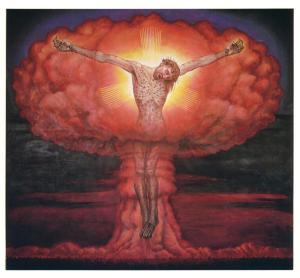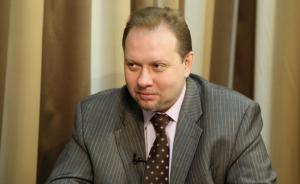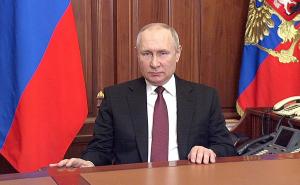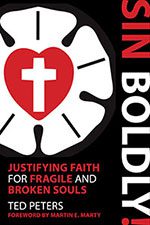From Ukraine to World War III via Alaska and California
PT 3302. How should we sin boldly!
 President Joe Biden must tip toe through both tulips and land mines to avoid spreading the Ukraine war to NATO and eventually to the world. I pray that the angels give the president gossamer shoes to avoid disturbing even one pedal beneath which lurks a nuclear warhead. [Nuclear Crucifixion by Alex Grey 1960]
President Joe Biden must tip toe through both tulips and land mines to avoid spreading the Ukraine war to NATO and eventually to the world. I pray that the angels give the president gossamer shoes to avoid disturbing even one pedal beneath which lurks a nuclear warhead. [Nuclear Crucifixion by Alex Grey 1960]
The tip toe World War Three dance
The U.S. president faces a moral dilemma with millions of lives hanging in the balance. Vladimir Putin shows no conscience regarding loss of human life let alone irreparable destruction of cities, infrastructure, and international harmony. How our consciences thirst for Ukrainian justice while we gulp only the dry smoke of detonated bombs! Watching helplessly the mayhem, migration, and murder of an innocent people simply cannot be the right thing to do. Right?
New York Times writer, David Leonhardt, explains the dilemma in, “Good morning. The Biden administration is facing an old Cold War dilemma: Be weak or risk a world war.”
| “The balancing act informs every aspect of American policy about the war,” a recent Times analysis explained… The balance involves vexing trade-offs in which almost any step that helps Ukraine defend itself also risks offending Putin….Already, a nuclear attack — while unlikely — has become more plausible than at any point since the Cuban missile crisis in 1962, my colleague Max Fisher has written. “The prospect of nuclear war,” António Guterres, the U.N. secretary general, warned last week, “is now back within the realm of possibility.” |
| He adds, “To ignore it,” Thomas Friedman writes, “would be naïve in the extreme.” |
The Ukraine war may be coming to Alaska and California
The genius of President Biden thus far has been to fight Russia without himself perpetrating violence. His sanctions have been so effective that some Russians are ready to fight back…with weapons. Even nuclear weapons?
Where will the next battle take place? Alaska? Fort Ross, California? Antarctica? Really? This sounds like fake news. But, we’ve learned to expect the unexpected. Here is an exchange taking place on Russian television reported by the Sun.
 “We should be thinking about reparations from the damage that was caused by the sanctions and the war itself, because that too costs money and we should get it back,” said Russian Parliament member Oleg Matveychev said on a TV show Sunday Evening with Vladimir Solovyov.
“We should be thinking about reparations from the damage that was caused by the sanctions and the war itself, because that too costs money and we should get it back,” said Russian Parliament member Oleg Matveychev said on a TV show Sunday Evening with Vladimir Solovyov.
Matveychev added: “The return of all Russian properties, those of the Russian empire, the Soviet Union and current Russia, which has been seized in the United States, and so on.”
Solovyov asked if the lawmaker specifically meant Alaska and the former Russian settlement of Fort Ross, California.
“That was my next point. As well as the Antarctic,” Matveychev said. “We discovered it, so it belongs to us.”
Solovyov also appeared to endorse a nuclear strike on “those who took our money”.

He said: “I still think that those who took our money should be told, you have 24 hours to unfreeze our funds, or else we’ll send you what you know we’ve got.
Patheos columnist Gene Veith reminds us of some relevant facts. Russia sold Alaska to the US in 1867 for $7.2 million. Fort Ross was a Russian fort and small settlement built in 1813 in what is now Sonoma County, 93 miles north of San Francisco. The Russian-American company that operated the settlement sold it in 1841 to John Sutter, who would later spark the California Gold Rush, for $30,000. In Putin’s eyes, do Alaska and Fort Ross look like Ukraine?
We’ve moved at whirlwind speed from invasion to sanctions to Alaska, California, and Antarctica and, finally, to the brink of World War Three.
How long can America’s leadership keep up the tip toe dance?
Public Theology in the face of nuclear war
 Should we ask our public theologians to weigh in on such grave and urgent matters? “A truly public theology operates in the public sphere,” says Princeton’s William Storrar. “Today the public sphere is global, torn and divided…. Public theologians have to identify issues of public concern that have already been removed from public scrutiny, developing civic and political strategies to bring them back into an expanded public sphere” (Storrar 2011, 23).
Should we ask our public theologians to weigh in on such grave and urgent matters? “A truly public theology operates in the public sphere,” says Princeton’s William Storrar. “Today the public sphere is global, torn and divided…. Public theologians have to identify issues of public concern that have already been removed from public scrutiny, developing civic and political strategies to bring them back into an expanded public sphere” (Storrar 2011, 23).
Now, we ask the public theologian to weigh in: Does national defense against aggression count to justify going to war? If you grant that self-defense is justified, would this apply to nuclear exchanges as well as conventional weaponry? In the case of nuclear exchange, everyone dies. Both the aggressors and the defenders. What might a public theologian think?
Let’s ask the Roman Catholics and the Lutherans.
Roman Catholics: There is no just nuclear war
In 1983 the National Conference of Catholic Bishops produced what I think is an unexcelled contribution to public theology, The Challenge of Peace: God’s Promise and Our Response. This pastoral letter addressed our anxiety over war and peace in a nuclear age. After reviewing both biblical teachings and the Catholic Church’s teachings about peace and war, and by reaffirming the “just war” theory, the good bishops concluded that no just war could be fought with nuclear weapons. Turning the other cheek to injustice is better than nuclear annihilation. Here is what is so important to grasp: just war theory itself implies that no nuclear war can be justified.
On the one hand, “§75. The council and the popes have stated clearly that governments threatened by armed, unjust aggression must defend their people. This includes defense by armed force if necessary as a last resort.”
On the other hand, this does not apply to a war in which nuclear weapons are deployed. “§131. “we must refuse to legitimate the idea of nuclear war. Such a refusal will require not only new ideas and new vision, but what the gospel calls conversion of the heart.” Or,
“§138. In brief, the danger of the situation is clear; but how to prevent the use of nuclear weapons, how to assess deterrence, and how to delineate moral responsibility in the nuclear age are less clearly seen or stated. Reflecting the complexity of the nuclear problem, our arguments in this pastoral must be detailed and nuanced; but our “no” to nuclear war must, in the end, be definitive and decisive.”
Not in the name of pacifism. Not in the name of non-violence. Not in the name of cowardice. Rather, in the name of just war theory, the NCCB categorically says “no” to the use of nuclear weapons.
This is public theology offered by the church that should be taken to heart by both Vladimir Putin and Joe Biden. As hard as it may sound: no one is right in pulling the nuclear trigger.
Lutherans: For Peace in God’s World
Are the Lutherans as decisive and forceful? No, not quite. But they try.
In 1995 the Fourth Churchwide Assembly of the Evangelical Lutheran Church in America approved the social statement, “For Peace in God’s World.” Holy Scripture teaches that forgiven sinners are called by God to work for peace.
“2.A. Through the Gospel, the Holy Spirit calls and gathers a people from all nations to worship and witness to the God of peace. The called and gathered are sinners, forgiven and righteous on account of Jesus Christ.”
 Like the Roman Catholics, the Lutherans take guidance from just war theory.
Like the Roman Catholics, the Lutherans take guidance from just war theory.
“B. We seek guidance from the principles of the “just/unjust war” tradition. While permitting recourse to war in exceptional circumstances, these principles intend to limit such occasions by setting forth conditions that must be met to render military action justifiable…. The principles for deciding about wars include right intention, justifiable cause, legitimate authority, last resort, declaration of war aims, proportionality, and reasonable chance of success….We begin with a strong presumption against all war; support for and participation in a war to restore peace is a tragic concession to a sinful world. Any decision for war must be a mournful one.”
The ELCA could not muster quite the strength equal to the NCCB in taking a categorical stand against use of nuclear weapons. Instead, “For Peace in God’s World” encouraged both church and state to curtail the arms race and work for peace and justice on all fronts. The social statement concluded,
“We are called to pray, and to live, for peace in God’s world. We do the liturgy and we disperse, trusting that the peace of God in Christ Jesus, “which surpasses all understanding” (Philippians 4:7), goes with us and prepares us to be peacemakers.”
Peacemaking is a divine calling, to be sure. But, when peace is no longer an option, then what? Sin Boldly?
Whereas the NCCB public theology stands strong like an oak tree, the ELCA social statement bends like a reed in the wind. But, in the Lutheran garden grows another plant worth harvesting, namely, sin boldly!
Conclusion
Much to the sadness and grief of NATO and America and the watching world, we have had to sacrifice justice for Ukraine in order to prevent a widening of Russia’s local war into World War Three. The U.S. president has had to dance to the music of dropping bombs. We are in a situation that can only be described by the Lutheran term used in other contexts, sin boldly!(Peters, Sin Boldly! 2015)
Purity is not an option. Doing only the right thing is not an option. Maintaining peace is not an option. Our leadership must choose between multiple evils. Some evils are worse than others. Nuclear war is worse than all other alternatives. So, sin boldly!
▓
 Ted Peters is a Lutheran pastor and emeritus seminary professor. He is author of Short Prayers and The Cosmic Self. His one volume systematic theology is now in its 3rd edition, God—The World’s Future (Fortress 2015). His book, God in Cosmic History, traces the rise of the Axial religions 2500 years ago. He has undertaken a thorough examination of the sin-and-grace dialectic in two works, Sin: Radical Evil in Soul and Society (Eerdmans 1994) and Sin Boldly! (Fortress 2015). Watch for his forthcoming, The Voice of Public Christian Theology (ATF 2022). See his website: TedsTimelyTake.com.
Ted Peters is a Lutheran pastor and emeritus seminary professor. He is author of Short Prayers and The Cosmic Self. His one volume systematic theology is now in its 3rd edition, God—The World’s Future (Fortress 2015). His book, God in Cosmic History, traces the rise of the Axial religions 2500 years ago. He has undertaken a thorough examination of the sin-and-grace dialectic in two works, Sin: Radical Evil in Soul and Society (Eerdmans 1994) and Sin Boldly! (Fortress 2015). Watch for his forthcoming, The Voice of Public Christian Theology (ATF 2022). See his website: TedsTimelyTake.com.
▓
Bibliography
Peters, Ted. 2018. “Public Theology: Its Pastoral, Apologetic, Scientific, Politial, and Prophetic Tasks.” International Journal of Public Theology 12:2 153-177; https://brill.com/abstract/journals/ijpt/12/1/ijpt.12.issue-1.xml.
—. 2015. Sin Boldly! Minneapolis MN: Fortress Press.
–. 2000. “Sin, Scapegoating, and Justifying Faith.” In God, Evil, and Suffering: Essays in Honor of Paul Sponheim, by eds Terrence Fretheim and Curtis Thompson, 62-74. St. Paul MN: Luther Seminary.
Storrar, William. 2011. “The Naming of Parts: Doing Public Theology in a Global Era.” International Journal of Public Theology 5 23-43.













